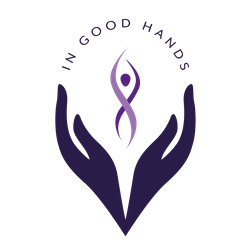How to Deal with Insomnia and Anxiety

Dealing with insomnia and anxiety is not easy when there are a lot of things to worry about nowadays that can make you feel anxious and fearful. No wonder so many of us are finding it hard to get off to sleep and stay asleep. There is nothing worse than tossing and turning in bed and lying awake worrying about things and forcing yourself to fall asleep. Then having to get up and deal with the day ahead when you are feeling exhausted fuelling your emotions and negativity.
What is insomnia
Insomnia is a type of sleep disorder that some people struggle with from lack of sleep and therefore are left feeling fatigued and not restored. They may struggle to get to sleep or stay asleep so not getting good quality sleep.
Insomnia triggers
There are a lot of things that can trigger sleep disturbances and insomnia such as:
Stress/worry/anxiety
Relationship difficulties
Finance worries
Family issues
Not being able to relax and switch off, too many things going around your head
Physical pain
From a traumatic event, something upsetting you
Changes to your normal sleeping routine or habits
Sleeping difficulties, particularly insomnia can lead to depression.
Insomnia and the risk of depression
Evidence suggests a close link between insomnia and depression. A study was carried out in 2016 looking at insomnia and the risk of depression from being deprived of sleep.
2016 meta-analysis of 34 studiesTrusted
You may experience other symptoms such as difficulty in concentration and remembering things, irritability, mood changes and fatigue.
Top Tips for getting a good night’s sleep.
Good sleep hygiene practice is the key to getting a good night’s sleep.
- Keep to a good routine and schedule for going to bed.
- Create the right sleep environment. Have the room a bit cooler, darker, quiet and comfortable.
- Diet is important – limit alcohol, and stimulants such as caffeine and sugar before going to bed.
- Exercise and eat well.
- Avoid daytime napping.
- Relaxation – especially before going to bed, reading a book, a warm bath and relaxation techniques such as meditation and deep breathing.
- Put away electrical devices before bedtime.
- Have a good self-care routine.
https://www.medicalert.org.uk/news/2018/03/19/Twelve-Tips-for-Sleep
Help with sleeping disorders
Sleep well programme for a good night’s sleep.
If you are finding it hard to relax and not getting to sleep, then I am able to help you in different ways.
I offer a range of different techniques, relaxation therapy exercises and solutions including Cognitive Behavioural Therapy (CBT), hypnotherapy and Neuro-Linguistic Programming (NLP). These are all interlinked, holistic treatments and I use a combination to give you an overall more empowering treatment.
We can work on negative thoughts and worries and learn how to cope with stress for a better night’s sleep.
In my sleep-well program, I incorporate mindfulness, stress management skills and guided meditation/visualisation. There will be relaxation therapy training – typically designed to stop racing thoughts, help to relax muscles, and encourage restful sleep.
Learn about the benefits of good, deep breathing. Breathing and sleep go hand in hand and learning some deep breathing skills help the mind and body to relax, switching off the stressor triggers, and slowing down the brainwaves, which in turn will help you get a better night’s sleep.
I am trained and qualified in Cognitive Behavioural Therapy and Hypnotherapy so I can help you with many issues or problems you may be struggling with.
Please do get in contact and I would be delighted to help you.
These treatments can be carried out online or in person.
Cognitive behavioural therapy (CBT) for insomnia
The American College of Physicians (ACP) recommends CBT as a first-line treatment for chronic insomnia in adults.
Alternative ways of treating insomnia
Other than medication, and a good diet there are some other ways that could help with sleep disorders including therapy as outlined above. Other things to try are natural remedies and supplements and of course lifestyle changes and a good self-care routine.
Aromatherapy
Essential oils are also very helpful and are relaxing and uplifting to promote restful sleep such as:
Lavender, cedarwood, chamomile, sandalwood.
One of the best ways to use essential oils is to have an aromatherapy massage. Essential oils are applied to the skin whilst receiving the benefits of a massage. Another good treatment in promoting sleep.
A 2015 review of 12 studies found evidence to suggest aromatherapy could potentially improve sleep quality.
Other techniques to deal with insomnia
- Sleep Restriction: Starts with restriction of sleep, then gradually increases the time you are in bed and can help improve the quality of sleep.
- Light Therapy: This technique involves exposure to bright light either in the morning or evening depending on if you find it hard to get off to sleep or stay asleep.
- Stimulus Control: Limits the time you spend in bed worrying about not being able to sleep. If you haven’t fallen asleep after 20 minutes, get up and do something calming and relaxing until you are tired and ready to go to bed to sleep.


